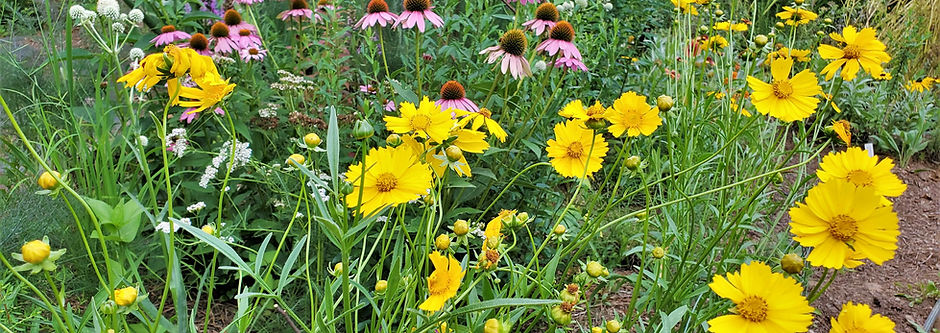Passionflower Vine Drama: Protective Ants, Life-Sucking Soldiers, and Intoxicated Bees
- ljmarkson

- Nov 28, 2020
- 2 min read
Updated: Jul 7, 2024
I’m typically an all-in kind of person when something interests me, and passionflower vine is a striking attention grabber. I won’t be able to move on until I share just a few more interesting tidbits related to this hard-working native vine:
Ants Are Not Innocent Bystanders

Ants have a symbiotic relationship with passionflower vine and set up housekeeping on the vines because of their “extrafloral nectaries”. This means that certain parts of the plant other than the flowers produce nectar that the ants eat.

Even more interesting - the ants guard the plants and even go as far as to eat butterfly eggs and push tiny caterpillars off the plants to ensure the caterpillars don’t defoliate the vines. I try not to interrupt nature as much as I can, but I have been known to gently flick ants off passionflower vine if they’re near a caterpillar baby or egg. Whoops.
It’s a Bug Eat Bug World

I’ve accepted the reality that I intentionally created a healthy ecosystem where a certain percentage of the caterpillars in it are essentially bird food. I try my best not to pick winners and losers, but sometimes further down the food chain I do (like the ants I just mentioned). I also feel completely justified swatting away the invasive European paper wasps with the red antenna when I find them scoping out caterpillars on my passionflower vines. Yet stink bugs and their look-alike cousins the spined soldier bugs also feed on gulf fritillary caterpillars. These kind of voracious insect predators showcase nature's brutality, but they're also an essential part of having a wildlife sanctuary yard...so I let them be. . Partying Bees?

The ingeniously designed stamens on the passionflower vine are the right size for carpenter bees to get their head covered in pollen when they brush against them as they try to get nectar. When the pollen laden bees then brush up against the next flower stamen, they spread the pollen and ensure pollination and fruit production. The bumbly process of getting the nectar makes the bees appear to be playing on the flowers.

I’ve read multiple accounts about the bees getting intoxicated and even falling down drunk from the passionflower nectar. Passionflower extract is touted as having a natural sedative effect on people, so I’m not exactly sure if the partying bee stories are based on scientific research or just fun gardening lore.
I think I’m just about done sharing passionflower vine experiences at least until late spring next year when new shoots again start popping up in my yard. If you plant a passionflower vine in your yard, I promise the drama unfolding around it will enchant you!


.jpg)
